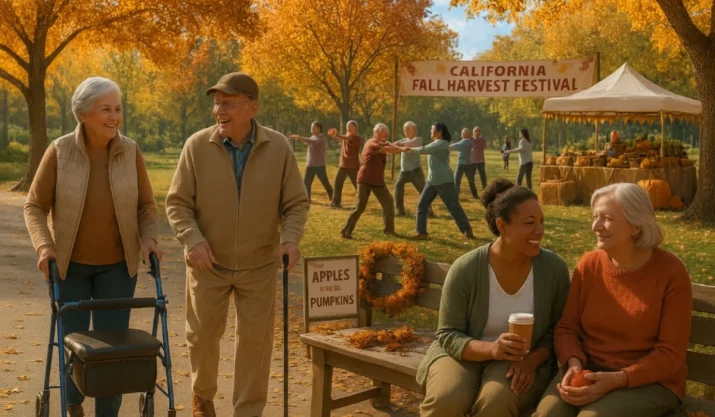Hobbies for Retirement

Table of Contents
Are you retiring soon? If so, you might be wondering how, exactly, you’re going to spend all of your spare time!
While the list of potential hobbies for retirement is extensive, it’s true that there’s no single best hobby for everyone. If you’re active, you might enjoy taking up bicycling. If you’d rather kick back and relax in retirement, then taking up a writing hobby might sound more appealing.
No matter where your interests lie, you’re sure to find something that interests you in this list.
Benefits of Hobbies in Retirement
There are countless benefits of taking up a new hobby (or two!) once you’ve retired. These can be categorized as emotional, physical, and social in nature.
For starters, a hobby will help you relieve stress. What kind of stress could you possibly have once you’re retired? – you might be wondering. Believe it or not, lots of seniors report that their retirement years are surprisingly just as stressful as their working ones. In addition to financial concerns, you’ll likely also have family and health stressors to contend with.
However, hobbies – particularly those that require a bit of exercise or mental stimulation – offer a great way for you to unwind and ease some of your mental burdens.
Similarly, a good, rewarding hobby will give you a sense of purpose. The more you learn while doing your hobby, the more satisfied you will feel – it’s also a welcome boost to your self-esteem!
A hobby can even help you improve your memory or allow you to uncover hidden talents. You never know how good you might be at something until you give it a try!
And let’s not overlook the social and physical benefits of a hobby, either. Hobbies can help improve your mental clarity and brain function and physical hobbies, like running, hiking, or even golfing, can help improve your cardiovascular health, too. Most hobbies, particularly those that get you out and about in the community, can also help you connect with like-minded seniors – with whom you may form lasting friendships.
What more reason could you possibly need to take up a new hobby in retirement?
Full List of Options
1. Go Back to School
Benefits
Whether you’re thinking of learning one new skill or you want to earn a full-fledged degree, there are lots of ways you can go back to school as a retired person. Chances are, higher education has changed (a lot!) since you were in school.
Maybe you want to learn computer programming. Perhaps you’d like to earn a degree in ancient languages. Whatever the case may be, there are plenty of ways to broaden your horizons during your newfound spare time.
Pros
- A great way to broaden your horizons and learn new things
- An option for a senior with interests in any area
Cons
- Can be expensive
- In-person learning might be a logistical challenge if you aren’t interested in learning online
- Requires a serious commitment of time and money
More Details
When it comes to learning new things, you’ll have plenty of options as a retiree. You could take a class or two online with a website like Udemy or LinkedIn Learning or you can enroll at a local community college to earn some credits. Read more about how to go back to school in this article.
A few other tips?
Don’t be afraid of virtual classrooms and be sure to meet with an admissions counselor at your school of interest. Watch out for for-profit schools, since they tend to have a lower graduation rate and offer poorer quality courses.
You can even look for financial aid! Believe it or not, there’s plenty of financial assistance out there for older folks and nontraditional learners so don’t be afraid to tap into it.
2. Learn a New Skill
Benefits
Whether it’s learning how to code computer programs, practice yoga or tai chi, or even woodworking, learning a new skill is another hobby that’s worth your time in retirement. It will help strengthen your brain and give you something new to look forward to – plus, it’s a great way to make new friends.
Pros
- Can be done independently or with a group
- Works regardless of what your interests might be
Cons
- It might be hard to summon the motivation or concentration to learn
More Details
Not sure where to start? Check out this article, which has a large collection of resources that will help you learn new skills (such as online learning platforms like Coursera and Udemy). Most of them are free, so you don’t have to spend a fortune to become more well-rounded in retirement!
3. Volunteer
Benefits
Volunteering is another hobby for seniors that has physical, emotional, and social benefits alike. Start volunteering and you’ll feel great about yourself. Plus, it will likely allow you to learn something new, too!
Pros
- Will improve your self-esteem and feelings of gratitude
- May be able to pursue a leadership role as a volunteer
- Will let you use skills you already have (or develop new ones)
Cons
- Volunteering abroad can be expensive
- Can require a significant time commitment
More Details
If you’re thinking about volunteering, it may be helpful to first think about where your unique skills and passions lie. If you are already a member of a local church, consider checking in there to find local volunteer opportunities.
Were you a carpenter before you retired? Perhaps you can volunteer with Habitat for Humanity. Former teacher? Consider working with kids at a shelter. You can even combine your love of travel with your desire to volunteer by going on a service learning trip.
Groups like Rotary International or Lions Club are a great way to get access to a number of community oriented volunteering activities.
4. Join Social Groups
Benefits
Socializing has a ton of benefits – but many of these are especially significant for seniors. Isolation can have serious and detrimental effects on both your physical and emotional wellbeing. Even if you have a core group of your own friends, consider joining a social group or two to get you out on the town and meeting fresh new faces.
Pros
- Exposes you to new people and new ideas
- Strengthens your brain (including your memory) and improves mental and emotional wellbeing
Cons
- Can be time-consuming
- You’re sure to encounter perspectives you don’t agree with (not always a bad thing!)
More Details
If you aren’t quite sure where to start, you might want to consider joining Meetup. Meetup is a good resource for people who want to find like-minded companions in their area who are interested in…well, just about anything! Whether your interests are in wine tasting or in skiing, you can use this platform to find engaging social groups to join all over the country.
5. Travel the Country or The World
Benefits
If you spent your working years chained to a desk, retirement is the perfect time to see the world. Whether it’s traveling to a nearby tourist hotspot or jet setting around the globe, take time to travel as a hobby in your retirement. You won’t regret it!
Pros
- A great way to see the world
- Will expose you to new perspectives and cultures
- Great option for couples
Cons
- Can be expensive
- Challenging for those with mobility issues
More Details
Did you know that travel is one of the most popular hobbies for seniors? Nevertheless, it’s important that you travel safely and economically. AARP has a ton of resources for seniors to help plan vacations and find discounts, no matter where you decide to travel. You can also take a look at this list of destinations for seniors who aren’t interested in walking a ton on vacation!
6. Write Your Story or Make One Up
Benefits
Flex that creativity muscle and pick up your pen (or keyboard, or typewriter…whatever works for you). Writing is a great hobby to pick up in your senior years. You can join a local writing group or go it solo.
It has a ton of mental benefits either way, helping you stay sharp and to build your creativity as you get older. You can even pick up a side gig of completing a few writing jobs here and there if you want to make some extra cash!
Pros
- Will improve your mental clarity and sharpness
- Could serve as a way to make some extra income
Cons
- Can be a solitary hobby if you don’t join local writing groups
More Details
Can’t figure out what to write? If so, take a look at these tips to overcome writer’s block.
7. Sell Crafts on Etsy
Benefits
Do you have a crafty side? Perhaps a unique skill that you’ve yet to monetize? If so, selling crafts on Etsy is a great new hobby to pursue – especially if you want to start a small side hustle in retirement! You don’t have to pay a thing to become a seller on Etsy (just a few cents for every listing you post). You can sell anything from crocheted hats to homemade Cricut projects, so start creating!
Pros
- Perfect for those who are more artistically inclined
- Great way to make a side income
Cons
- Requires a bit of a time commitment
- May require some innate talent
More Details
Take the time to read up on Etsy’s terms of use and information on how to start a shop before you dive in. If you’re not the most technologically savvy, you may want to enlist the help of someone who is able to help you take some gorgeous photographs of your wares.
8. Give Motorcycling a Go
Benefits
Hear us out on this one! It might not be a hobby for the faint of heart retiree, but if you’ve always had a wild streak, you may want to consider motorcycling as a new hobby. Hey, you’ll save space in the parking lot at least!
Pros
- Perfect for seniors who are more adventurous
- May allow you to ditch your car payment for good!
Cons
- Not the best for seniors with mobility issues
- Riding a motorcycle can be dangerous
More Details
As we get older, our equilibrium can deteriorate and our reaction time may slow down. If this is the case for you, consider a Can Am or Harley Davidson three-wheeler which are great safer options.
9. Take Up Running
Benefits
Whether you were a high school track star or not, running is a great way to stay fit and meet new people as you get older. You can socialize with other seniors at local running shops or races and trying to beat your times is a good way to stay motivated as you age, too.
Pros
- One of the best exercises you can do to improve your cardiovascular and muscular health
- Can improve your mood and autonomy as you set goals and crush them
- A great way to socialize with local runners
Cons
- Can be hard on the body, especially the joints
More Details
Know your body’s limits if you choose running as your retirement hobby. Check with your doctor before beginning and take the time to learn how to stretch. Stretching can be annoying for any runner, but especially as we get older, it’s important that we take the time to do so to prevent injury.
10. Go Cross Country Skiing
Benefits
Cross country skiing is a great form of exercise that is not only low-impact, but will get you moving in the winter, when you’re more likely to become a couch potato. It can boost your mood and increase socialization, too.
Pros
- Great form of low-impact exercise
- Local social groups may motivate you to get out on the trails
- Winter hobby that’s great for beating cabin fever
Cons
- Obviously not an option in warmer climates
More Details
If you’re hesitant to try cross country skiing, signing up for a getaway might encourage you to get started. There are all kinds of cross country ski resorts and lodges that are senior-friendly and most offer discounts for older people, too.
11. Join a Book Club
Benefits
Even if you didn’t consider yourself to be a reader during your days in the workforce, it’s worth giving this idea a second glance. Joining a book club is a way to deepen your understanding of both books and people. Even if you only go to a book club for wine and conversation, it’s still an excellent excuse to get out of the house!
Pros
- May encourage you to read new books you wouldn’t have tried before
- Will help you meet new people
Cons
- You may encounter book club members who get under your skin
More Details
There are plenty of book clubs that meet at third party locations like libraries, restaurants, or breweries – but if you plan on hosting book club at your own place, you might want to check out these tips for hosting a book club so you can be the best host possible (regardless of whether you actually read the book).
12. Pick Up Photography
Benefits
Picking up photography will allow you to see the world in a brand-new way. You’ll enlarge your mental eye to see beyond just the photo, allowing you to constantly learn and develop the more artistic side of your brain as you get older.
Pros
- Will allow you to flex your creativity muscles
- May allow you to pick up a side income
Cons
- Photography equipment can be expensive
More Details
If you’re new to photography, you might feel daunted by everything there is to learn. What does ISO mean? Aperture? How do you know when to use a tripod? What about the light? Consider taking a class to help acquaint you with the basics – or at the very least, read through this list of tips first.
13. Learn to Play an Instrument
Benefits
One of the greatest benefits of learning to play an instrument is the ability it has to lower your stress. Some studies have also suggested that playing music can help offset dementia or Alzheimer’s.
Pros
- Reduces stress while improving your patience and perseverance
- Cultivates creativity
- Improves your memory and time management skills
Cons
- Music lessons and instruments can be expensive, especially if you decide later that this hobby is not for you
More Details
Not all instruments are made alike – it can be difficult to learn how to play a new instrument but. Consider this list of the best instruments to learn (yes, guitar is one of them!) if you’re a tad on the older side!
14. Go Birding
Benefits
Birding is the ideal activity for the retiree. Not only will you be able to get outside and hike around a bit (offering all of those physical benefits) but you’ll also be able to exercise your reflexes as you focus on that bird. Not to mention you may be able to join a social group and to exercise your mind as you work to identify the bird!
Pros
- Allows you to get closer to nature
- Can improve your patience
Cons
- Challenging in urban environments
More Details
Birdwatching is an accessible hobby that will allow you to network with a local community and give you a chance to exercise – but not knowing what kind of bird you are looking at can certainly put a damper on the day’s events! Check out this guide to help you identify all kinds of birds.
15. Try Gardening
Benefits
Gardening isn’t just good for your physical health but it’s also good for the soul! You’ll get a ton of exercise and even boost your immune system by digging around in the dirt. Even if you have some mobility issues as you get older, gardening is still a possibility – just utilize resources like raised beds and kneelers to help you access your garden plots.
Pros
- Great for the immune system
- Will allow you to grow your own food
- Lets you interact with nature
Cons
- Not always easy to garden in the wintertime (although there are indoor gardening projects you can try)
More Details
Check out this list of gardening projects for seniors if you’re stuck for ideas on how to get your hands dirty – bonus points if you choose one that you can do with your grandchildren when they visit!
16. Learn About Your Genealogy
Benefits
With all the resources provided by the internet, it would be shocking if you hadn’t already considered digging deeper into your genealogy. Genealogy work is a great pastime to exercise your brain and may even introduce you to distant relatives you’ve never met!
Pros
- Engaging hobby that will let you learn more about your background
- Great hobby to do with your partner or family members
Cons
- You may learn a few details you didn’t want to know
- Can be expensive
More Details
You will be amazed by what you learn about – and from! – your ancestors. Consider a resource like 23andMe to help you connect with your genetic past.
Tips for Finding a New Hobby
Looking for inspiration as you search for a new part-time gig in retirement? It’s all too easy to find yourself overwhelmed with boredom once you leave your full-time 9 to 5, but you don’t have to start working again in order to feel fulfilled and happy.
Instead, you just need to pick up a hobby.
If you’re having trouble finding the right one, take some time to make a list of all the things you enjoyed doing when you were working. After all, your identity has remained the same even though you are now a retired person!
Did you enjoy knitting? Exercising? Whipping up new recipes in the kitchen? Consider learning more about your favorite pursuit as you look for hobby ideas – or consider ventures that you’ve always wanted to learn more about but never had the time. Now that you have more flexibility in your schedule, you might want to consider learning a foreign language or traveling the globe!
It may also pay to consider your spouse’s interests. What sorts of leisure activities are they interested in trying? Trying a new hobby with a partner or even a friend is a great way to strengthen your bond, learn new things, and even to reduce feelings of loneliness.
Conclusion
There are all kinds of popular activities that you might consider trying in retirement. You don’t have to stick to the stereotypical senior activities like bridge and board games, either! Your retirement years are just that – yours. So be sure to try out a new hobby or two to make the most of what’s sure to be the best years of your life.






